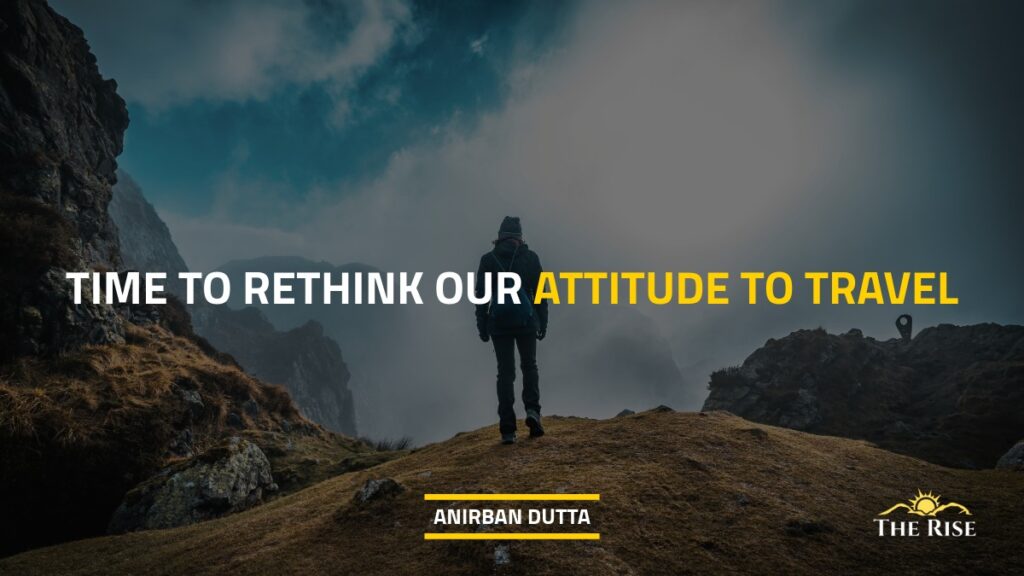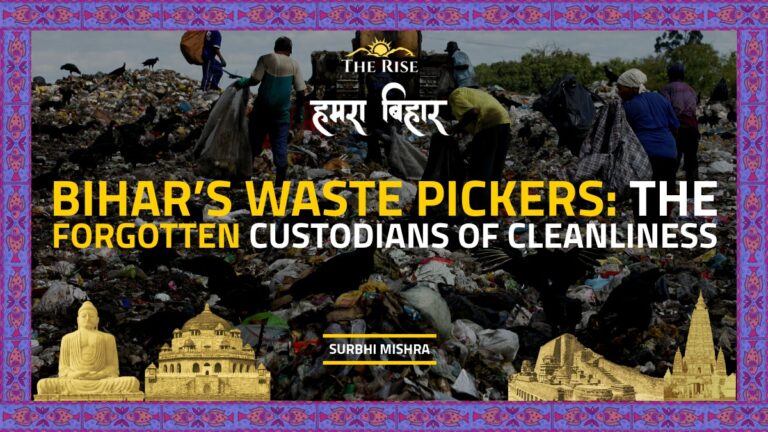“Wherever you have friends, that’s your country, and wherever you receive love, that’s your home.” – His Holiness the 14th Dalai Lama
Where’s our home gone?
Are our friends long-gone, too?
I have spent several sleepless nights in Darjeeling. Listening to every passing truck and the early morning folks attempting to be on time for Tiger Hill trips. I have often wondered how beautiful and pure the Hills of Darjeeling must have been when there were bird songs, the sounds of gentle streams, the music from the nearby Jhoras – flowing all day long, and the gentle cold breeze from the Himalayas (Himalayan mountain range) that would soothe your body and mind to a timeless aura of Mother Nature.
On one of those nights, I had visitors at my doorstep. Strangers!
To me, perhaps, however, not to the Mountains!
Three unimaginably tall men with dark black drapes made me sneak-peak at them from my half-covered glass window, and their aura would take me by surprise! I tried to gaze at them through the smoke emanating from their incense burners. Their presence at my doorsteps – literally at half past two in the morning was completely unexpected! The moonlit mountains created a magical setting that I could only imagine would have existed in fairy tales. As much as I was scared and clueless, I decided to let the men continue their prayers, and trust me, I didn’t try to record or photograph any moment of it. I stood still by the door and deeply immersed myself in that night’s dream.
Also Read: Heritage Sovereignty: The Legal Labyrinth India Navigates for UNESCO Glory
After almost an hour, when the men had left the door empty, I stayed awake for the rest of the dawn. I waited until 8 AM and ran to my landlord, Pravash Da, to seek an explanation for last night’s otherworldly event. At the beginning of my restlessness, he remained calm and hardly responded. Upon prodding him again and again, he murmured a bit and said they might have been Monks from the nearby monastery, who come to pray at chosen places, where they feel that someone is suffering and needs healing. They follow the energy and would often pray for compassion, peace, and wisdom.
This brief discussion with Pravash Da raised my curiosity. I wondered why they had chosen my doorstep for their prayers. Was I suffering, or was I important enough for them to respond to my feelings?
Next week, after a walk with a couple of my guests, I walked up to the Bhutia Bustee Gompa and waited to meet the Meme (Monk) there. It was my fifth meeting with him in the upper-floor prayer hall of the monastery. I had previously approached him for his extensive knowledge of Tibetan Buddhist practices and hundreds of folk tales that he would very lovingly narrate to me. If he did not have any other visitors, he would dedicate hours to me. When I had explained to him what I had gone through the previous week during the awakening experience, he smiled and looked at me as if we had just met and the day had just begun. It was as if he were waiting for me to come to him and seek an analysis of it, and was already aware of all that I was going through! And he actually did know it all.
In awe, I requested his analysis. He asked me why I was suffering and why I had left my Kolkata home and decided to live and work in Darjeeling. These questions took me back to my sleepless nights, and I looked at him…. murmuring, “….bird-songs, rivers, mountains….and nature!”
He said, “It’s gone, and the little that’s left is dying.”
I had my answer!
That afternoon, when I walked back home, I was heavily depressed and almost felt the suffering again. When I reached home, I cried, looking outside my half-covered glass window. I cried for the mountains. I cried for their many rivers, birds, animals, seasons, and indigenous peoples.
For thousands of years, humans have trodden in the Himalayas. Some for exploring new horizons, some in search of new minerals, some to colonise, and some in search of new cultures. What we have largely missed out on is that we humans have always intended to travel for ourselves and rarely for the universe as a whole.
Also Read: West Bengal Floods and the Women Who Lead: SHGs Building Resilience in the Sundarbans
Renowned primatologist and anthropologist Jane Goodall passed away recently, and I have been an ardent follower of her journey, her activism, and especially her work engaging the youth to restore humankind’s attention to other living beings on Earth. The question is how we must have learnt from Jane’s remarkable voyage of discovery and should have been able to become empathetic towards other lives.
After ten years in the travel industry, I am utterly clueless about the time we will face. In this quest, we have often misled ourselves into thinking of improving facilities for humankind only by making our infrastructure, our attitude highly plastic and insensitive to other living kinds. What we have known for the last few centuries is that humans, being among the most intelligent and emotionally moving creatures, can rightfully form and restore companionship among all other living beings.
The setback is philosophical and not only physical to contemplate. That is why the problem is even deeper and more dangerous to imagine, and a far more right-wing attitude has set foot, boldly declaring the fact that we cannot imagine the change yet! We as humans have largely failed planet Earth and all its valuable resources. In this pseudo-evolutionary process of growing up, we have slaughtered possibilities of living with nature, living amid the wild, and finding happiness in the happiness of other beings.
Our so-called Sustainability Meet-ups often take place in some of the most unsustainable facilities, whose credentials are self-proclaimed and merely human! Imagine living for yourself only, and that is how we have killed our communities, generated more hatred among species, races, and even celebrated disasters like social media puns.
Whenever I have any opportunities these days, I try to highlight these issues extensively, and the activism is slowly growing inside me. Often, some people would ask me which generation I have come from, as I am talking about an era that seems like a dream to most of us today!
However, the last three decades have elevated our greed to apocalyptic levels. Our investment has shifted its attention from asset building to a credit-driven society. Our students and farmers have not been left out of this mismanagement, either. Instead of funding, they are now tempted by credit cards.
We must understand that we were always an agrarian country, where our strengths lay in our rural ecosystems. Now that we have failed our farmers and youth, the jobless have either become unwanted or have turned their faith towards our overcrowded cities, where greed has submerged our wetlands, and natural living has been heavily discouraged.
In the past centuries, when the rest of the world came to India to trade, we, the present lot, the descendants of the same successful lot, have turned our faith to the West and, most importantly, not to strengthen our societies, but to be selfish and focus on our own courtyards. Now that we are left without nature’s courtyards, we have technology to make us feel what existed in the past. The funniest and scariest thing is that this past – what we often refer to as our heritage – is merely a hundred years old and not from BCE.
Now, imagine!
It has been a challenging and depressing time for some of us, who had imagined a world of peace and greener pastures. A world of rivers that give us poetry and elevate civilisations. We have hardly learnt from history! Our tribal goldmine – our Adi-Vasis (Humans with indigenous knowledge of survival and evolution) has been motivated to become like us and build more concrete, so that we can club them in our corrupt envelopes too! Those who have refused to come to this agreement have either spent life in prison or on a secluded island, where we promise to introduce ‘Irresponsible’ Tourism someday.
Also Read: Tied by Roots, Driven by Purpose: The Women Entrepreneurs of Nagaland
We do not travel for any greater quest these days. We encourage travel for luxury, to experience the niche to the degree of being plastic. Our very niche operations often demand insensitive measures towards residents, communities, wildlife, and natural landscapes. We no longer go on family holidays; we travel for a social media boost.
Tagore travelled extensively to the West, holding immersive travel episodes to China, Japan, and Iran. What he was successful at was that he correctly balanced the Western influences with Eastern idioms and gave birth to a social structure that possessed the best of both societies. However, we are now inspired by the very fascist, racist, and classist approaches of the West today! Anything that shines for them, we try to copy them without proper understanding, and we end up crashing onto our beneficiaries, our people, who have absolutely no knowledge of the influence.
What we lack is not only the right attitude toward policy-making but also a philosophical approach to travel and to offering and operating travel. We must rethink and travel in the quest for a greater Universe and not merely for human empowerment. Besides facilities and the right leadership, what we lack is empathy and acknowledgement!
Slow travel is not a luxury! It is an invitation to travel for this greater quest, a greater adventure of the universe.
Prayers for everyone!
Disclaimer: The views expressed in this article are those of the author solely. TheRise.co.in neither endorses nor is responsible for them. Reproducing this content without permission is prohibited.
About the author
Anirban Dutta is Founder, Explorer of Darjeeling Walks, Film Director, Activist, and Ethnographer. Since the last decade, he has been an active trotter in the tourism industry. Besides travelling, he is an internationally acclaimed filmmaker and photographer.






